These Are All of the “Words of the Year” From 1990 to Today

Words are fun, finicky, and ever-evolving. As time goes by, new words make their way into common usage and old words take on new meanings. Each year, there’s one term that stands out the most. That’s why the American Dialect Society (ADS), an organization that’s “dedicated to the study of the English language in North America, and of other languages, or dialects of other languages, influencing it or influenced by it,” annually chooses a word or phrase to highlight. It may be important for political or pop culture reasons; it could be one that’s way out of use today or one that’s getting increasingly popular. From its inaugural winner in 1990, here is every ADS Word of the Year through today. And for more to appreciate, here are The 50 Most Beautiful Words in the English Language—And How to Use Them.
1990: bushlips
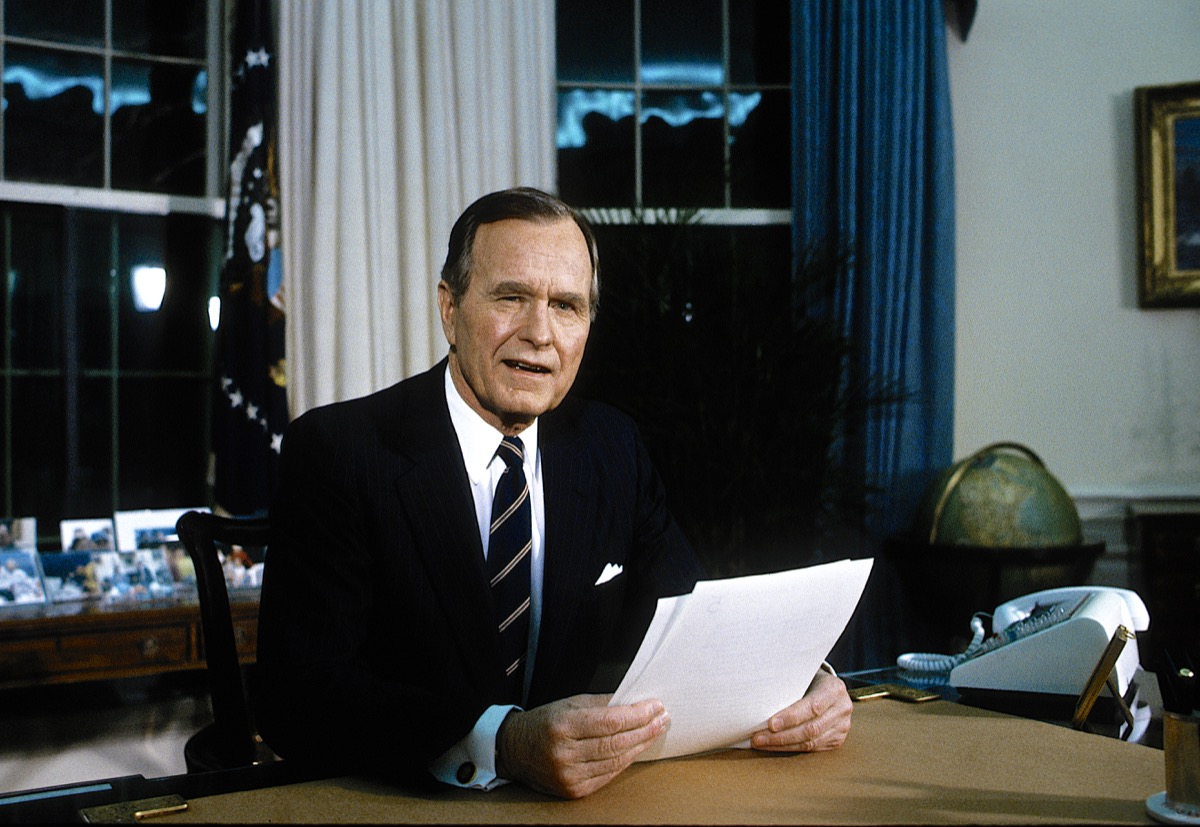
In 1988, George H.W. Bush delivered a speech at the Republican National Convention in which he told the crowd, “Read my lips: no new taxes.” That promise was broken, and “bushlips” (as in bush lips) made its way into popular language as a way to describe “insincere political rhetoric,” according to the ADS. They chose it as their word of the year in 1990.
And fascinating regional dialects, here are 60 Words People Pronounce Differently Across America.
1991: mother of all –

The word of the year in 1991 was actually a collection of words that made up what you might consider a momentum-building prefix. Add “mother of all” to whatever you’re referring to and it immediately makes it the greatest, biggest, or most impressive example of something. To bring the phrase into today’s world, the mother of all Instagrammable cafés is the most social media-worthy eatery around.
1992: not!

The only time you’re likely to hear someone use the expression “not!” nowadays is if they’re dressing up as a Wayne’s World character for Halloween. However, in 1992, it was the word of the year (with the exclamation mark included for needed emphasis, of course).
And for more indelible expressions from the decade, here are 30 Movie Quotes Every ’90s Kid Knows by Heart.
1993: information superhighway

In 1993, “information superhighway” was the term to use when referring to modern communication methods. And while these days you might be talking about texts or FaceTiming, in 1993, data was shared primarily via computers, televisions, and telephones.
1994: cyber and morph

In 1994, “cyber” (“pertaining to computers and electronic communication”) was named the word of the year—but it wasn’t alone. The ADS called a tie, also choosing “morph” (“to change form”) as one of the top words of those particular 12 months.
And for some out-of-date words that used to be all the rage, here are 150 Slang Terms From the 20th Century No One Uses Anymore.
1995: World Wide Web and newt

The tie of 1994 was the first time the ADS chose two terms as the co-words of the year, but it wasn’t the last. It may be hard to imagine life without the internet today, but in 1995, surfing the “world wide web” was still new and thrilling. That’s why it was the word of the year, as was “newt,” which refers to the act of “mak[ing] aggressive changes as a newcomer.”
1996: mom (as in soccer mom)

In 1996, soccer moms weren’t just women who were taking their kids to sports practices—they were an entire demographic that was identified as a “newly significant type of voter,” according to the ADS. That’s why “mom,” taken from soccer mom, was chosen as the word of the year.
And for terms you’ve been pretending to understand, here are 50 Words You Hear Every Day But Don’t Know What They Mean.
1997: millennium bug
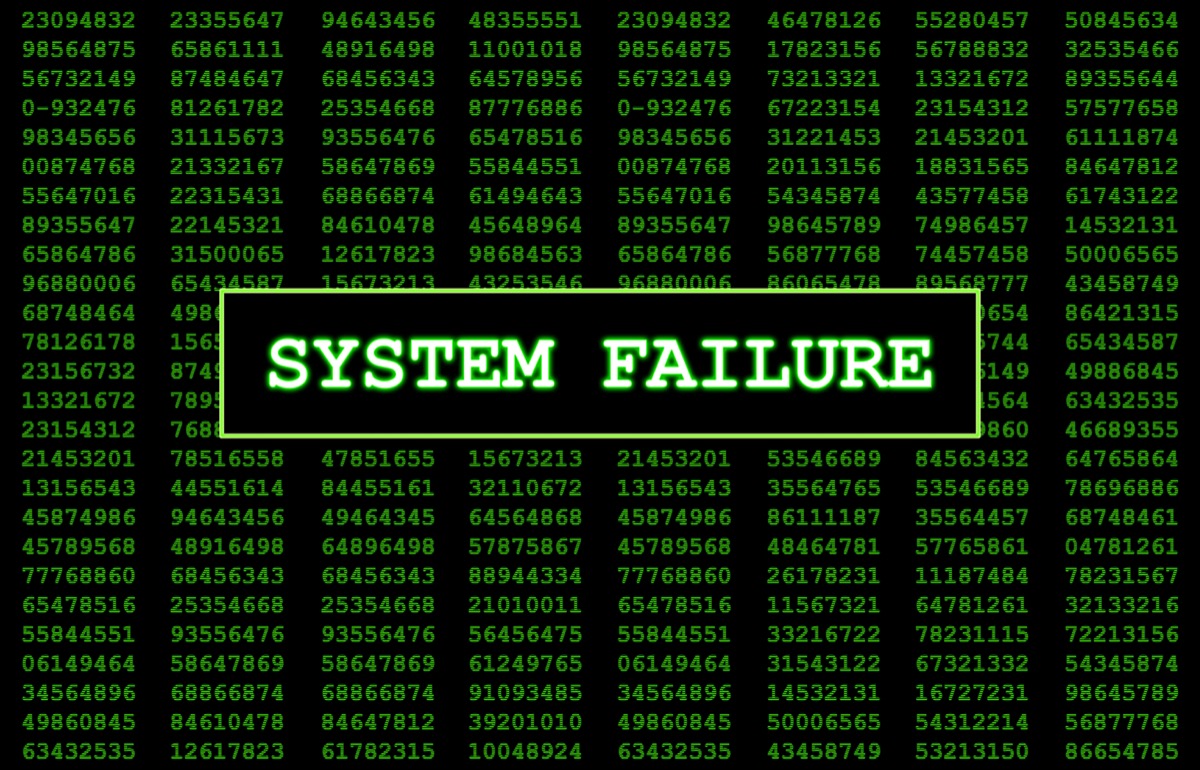
“Millennium bug” was widely used to refer to a tech-related glitch that supposedly threatened to shut down computers (and everything run by computers) if the devices weren’t able to handle the rare change in date when January 1, 2000 rolled around. Of course, it turned out to be unwarranted anxiety. But the fear—and the phrase—were very real.
1998: the prefix e-

The word of the year in 1998 wasn’t a word at all. It was part of a word. Or, to be more exact, it was a prefix. Short for electronic, “e-” became the ADS’s word of the year since it was being widely used in terms like “e-mail” and “e-commerce.”
And for more language facts delivered right to your inbox, sign up for our daily newsletter.
1999: Y2K
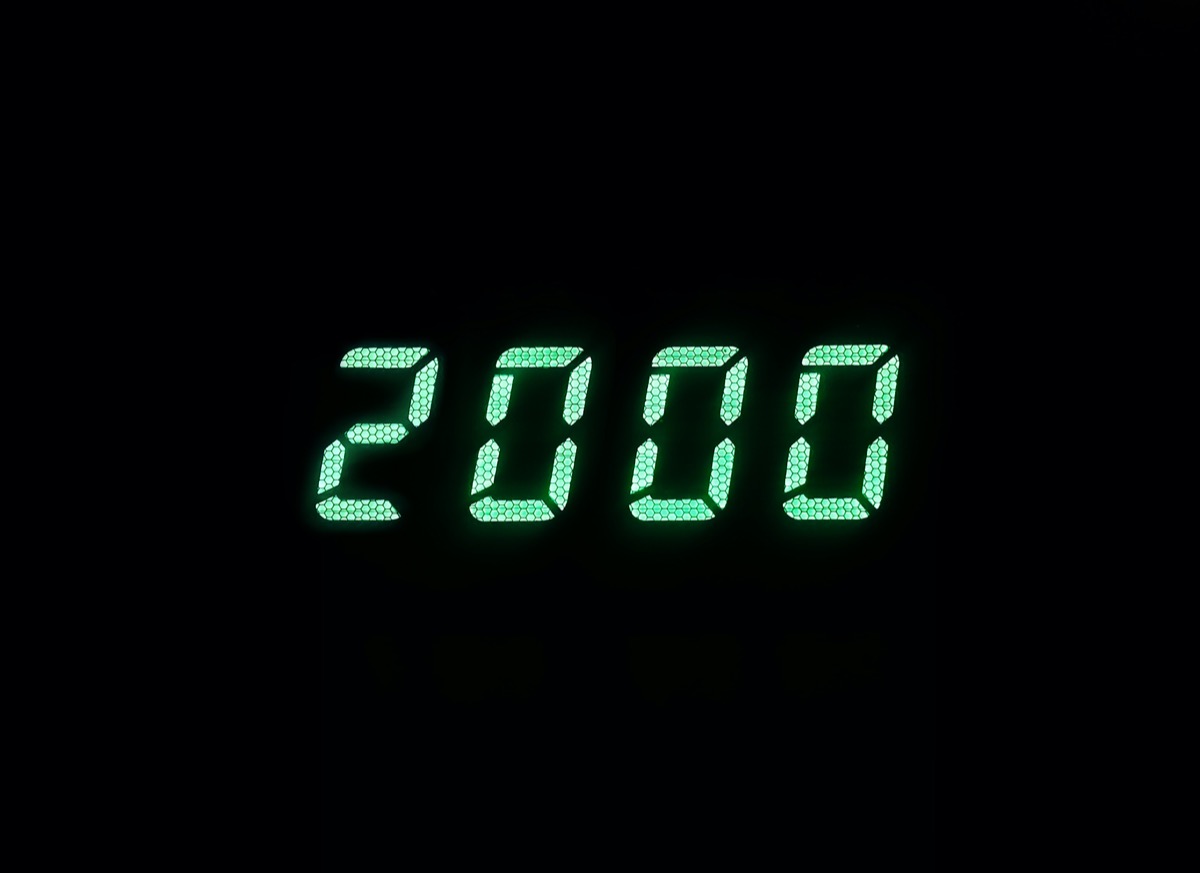
As the world prepared for the new millennium, the term “Y2K” (which stands for the year 2000) became all the rage. Fittingly the ADS’s word of the year for 1999, the term was widely used to refer to the Y2K bug or Y2K scare, which was another name for the millennium bug.
2000: chad
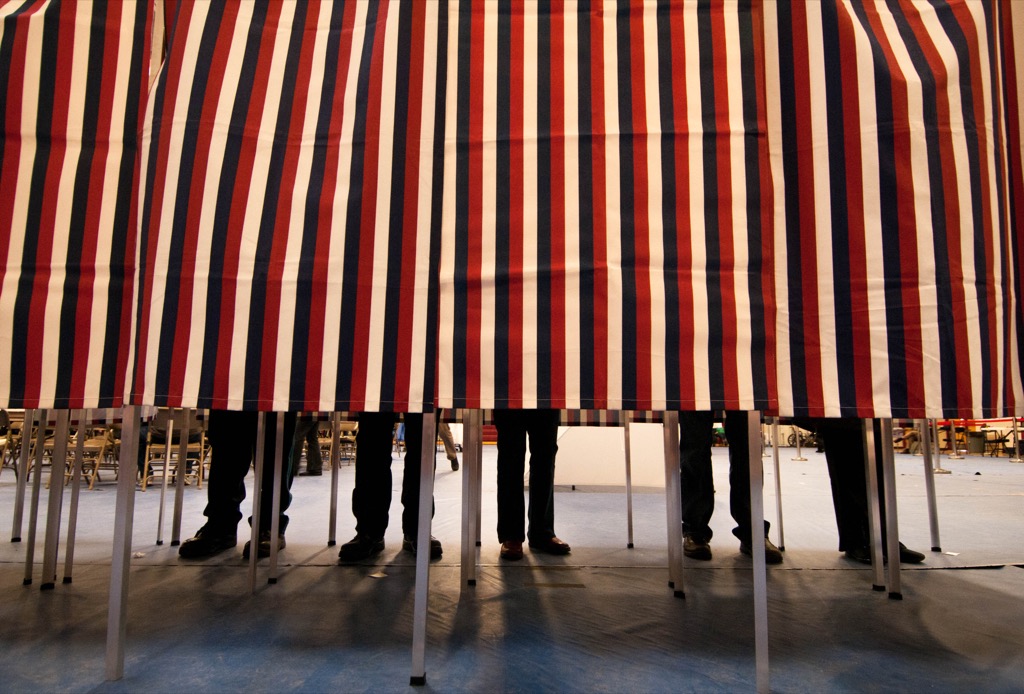
If you think of the term “chad” solely as a man’s name today, you’re not alone. But in the year 2000, the presidential election controversy led to the ADS choosing it for the meaning “a small scrap of paper punched from a voting card.”
2001: 9-11, 9/11, or September 11
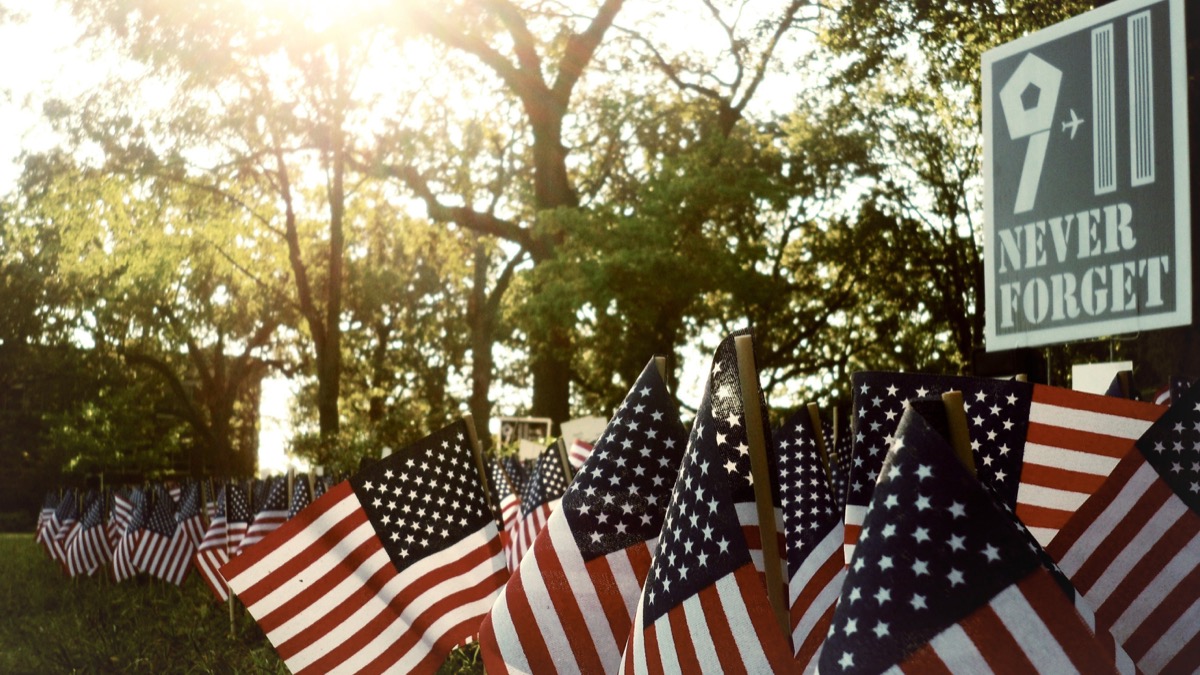
In 2001, the United States suffered one of the deadliest attacks within its borders on Sept. 11, a date that was chosen as the word of the year. The infamous day that is now a part of the darker side of the country’s history also became known as 9-11 and 9/11.
2002: weapons of mass destruction

It’s certainly a sad situation when “weapons of mass destruction” (or WMD) is chosen as the word of the year. But that was what happened in 2002 when the United States attempted to track down possible chemical and biological weapons as well as nuclear bombs in Iraq.
2003: metrosexual

At the turn of the century, the world was finally ready to recognize and embrace the “metrosexual,” a man who cared about his appearance and was savvy about style. In 2003, it became the ADS’s word of the year.
Nearly 15 years later, The Telegraph claimed that the “metrosexual is dead—and a new kind of sensitive man killed him,” one who appreciates a “greater depth and meaning” and “place[s] the highest value on dependability, reliability, honesty, and loyalty.” We can all get behind that, right?
2004: red/blue/purple states
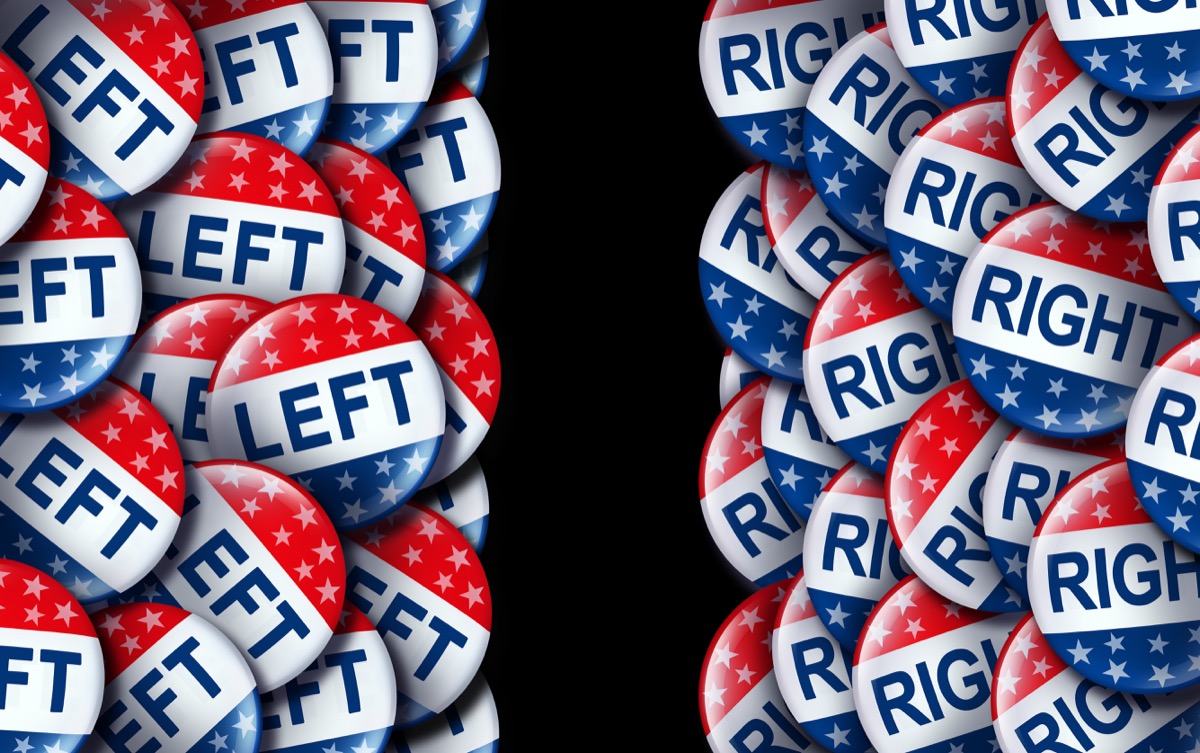
Political divisions in America are represented by two varying colors, which is why “red/blue/purple states” was the popular term in 2004 to identify which areas leaned a certain way. The American Dialect Society explains that “red favor[s] conservative Republicans and blue favor[s] liberal Democrats,” while those who are undecided are considered purple. Americans are much more used to hearing these terms today.
2005: truthiness
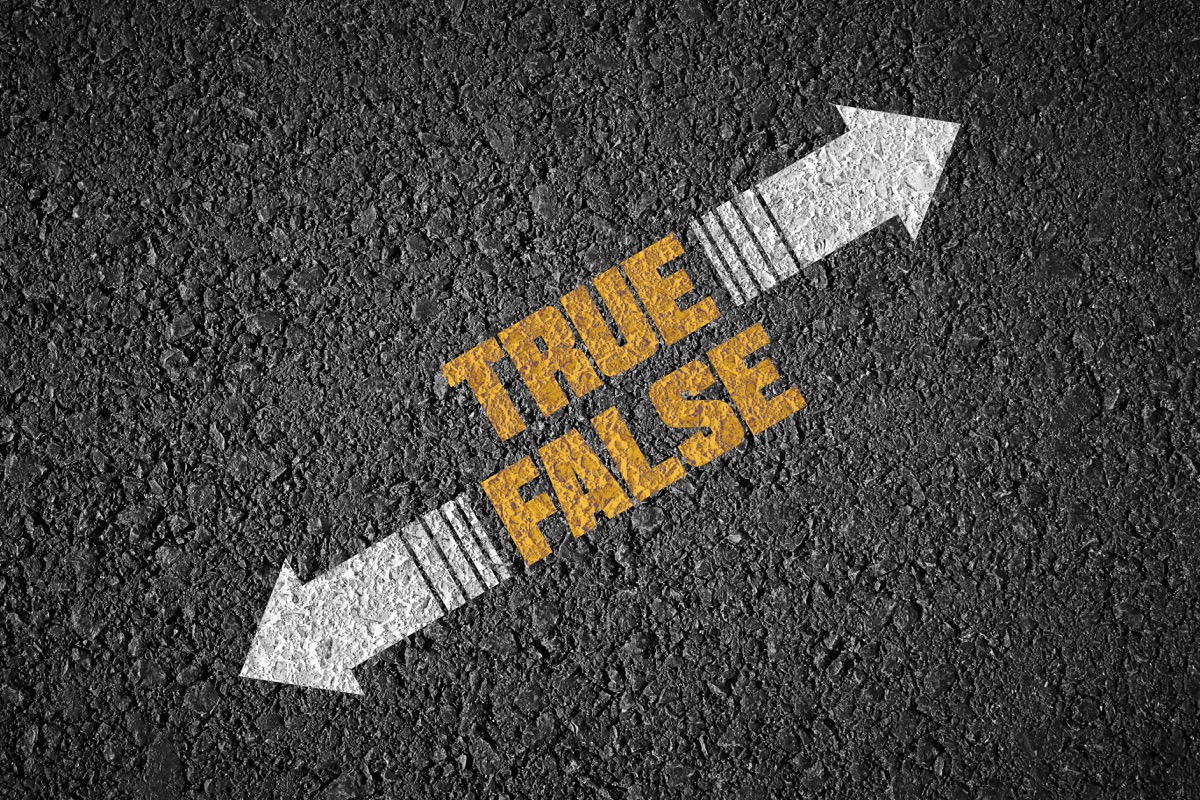
There’s the truth and then there’s “truthiness,” which is a term that “refers to the quality of seeming to be true but not necessarily or actually true according to known facts,” according to Merriam-Webster. The American Dialect Society chose “truthiness” as their word of the year in 2005 after it was popularized by Stephen Colbert and his right-wing parody show The Colbert Report, which launched that year.
2006: plutoed

Pluto has gone through a wild ride over the years in terms of classification. Once considered a planet, it was demoted when it no longer met the necessary criteria (something that is still being debated). And in 2006, the term “plutoed” was the word to use if you wanted to make a comparison between the spacial body and something else that had lost status or wasn’t being valued. Poor Pluto.
2007: subprime

The word “subprime” is pretty self-explanatory—it’s something that’s, well, not exactly the best. When it comes to investments, specifically real estate, subprime is what you’d call a loan or deal that’s iffy or risky. And in 2007, buyers, sellers, and property flippers were all dealing with the Subprime Mortgage Crisis that hit the United States, which is why it became the word of the year.
2008: bailout

When the government helps out a failing business, it’s called a bailout. And as you may recall in 2008, U.S. Congress approved a $700 billion Wall Street bailout that dominated headlines, hence ADS choosing it.
2009: tweet
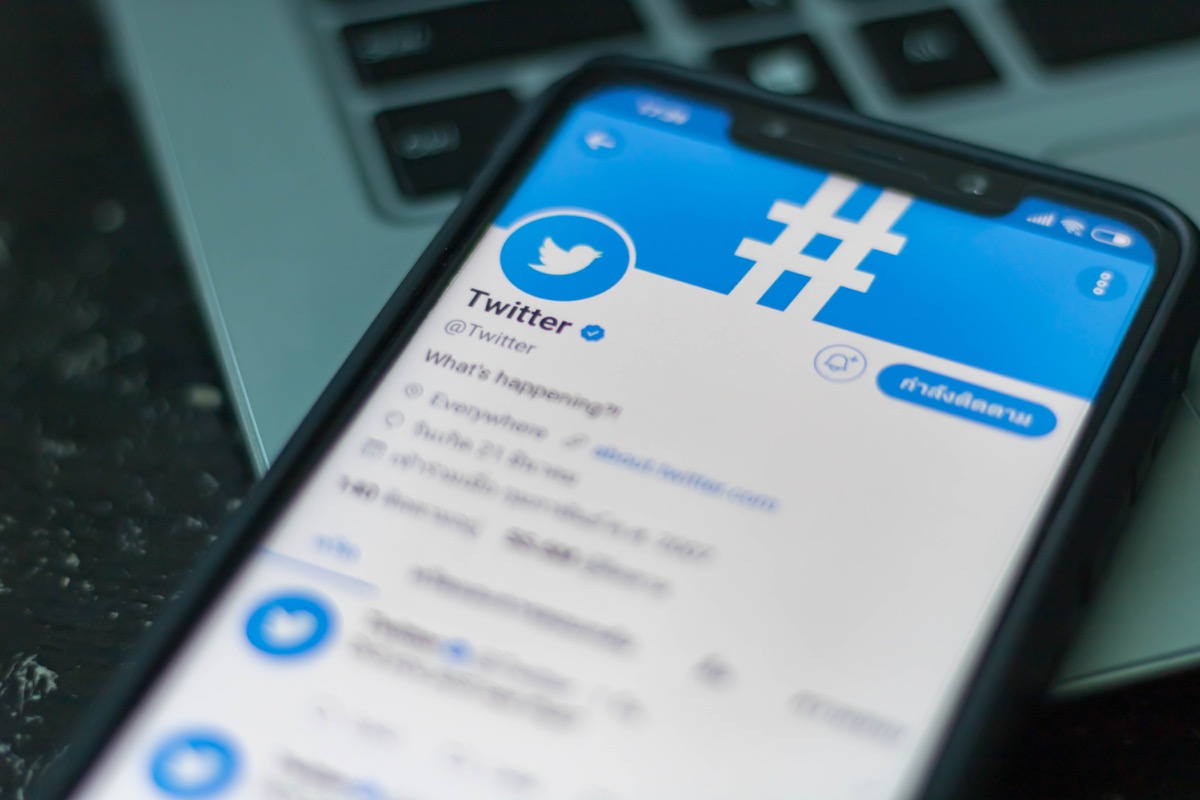
Twitter launched in 2006, and by January 2009, users were sending two million messages a day over the social media platform. That’s why the top word that year from the ADS was “tweet,” which can refer to either the action of sending text on the platform or the actual message itself.
2010: app
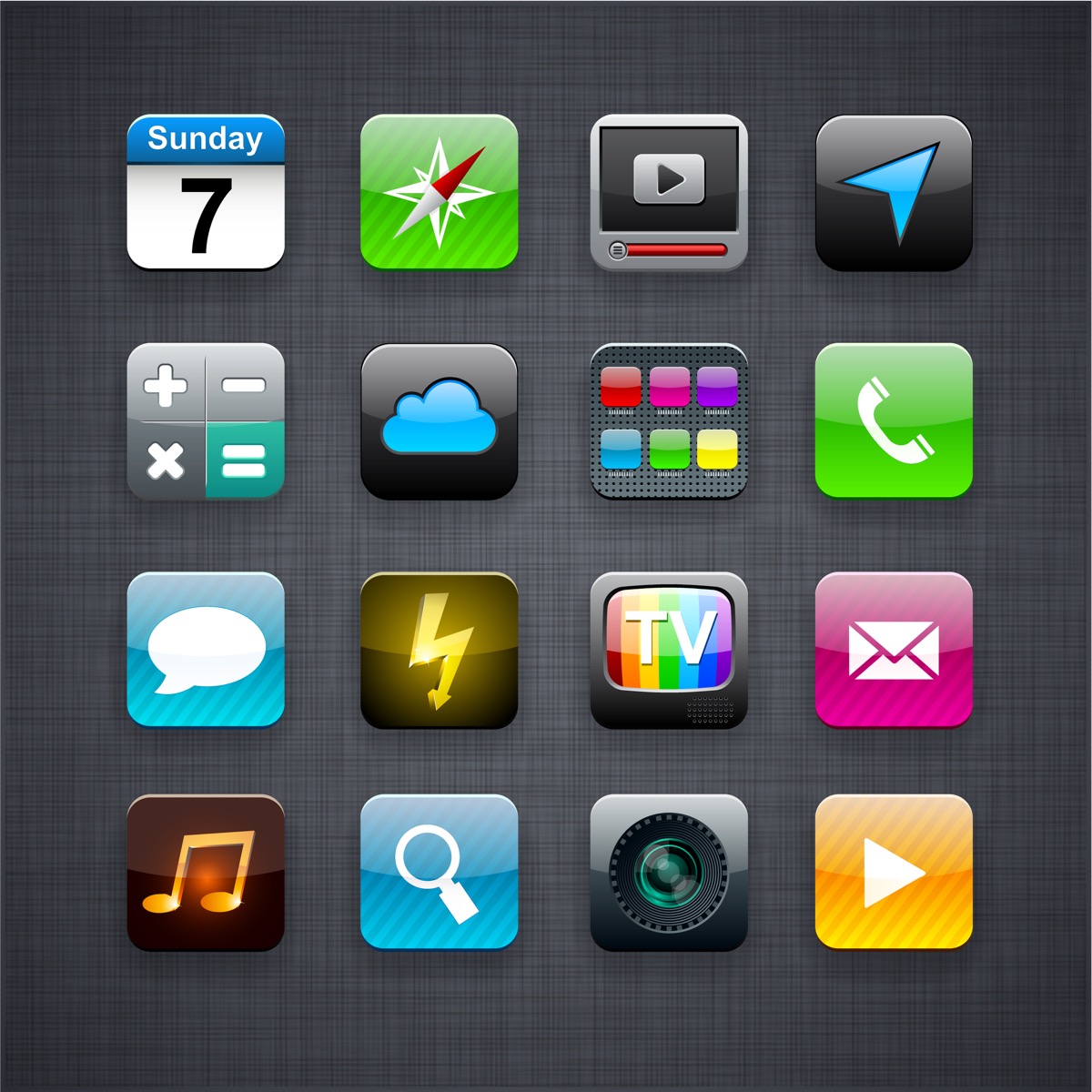
An app is certainly not an unusual thing these days, but in 2010, it was a word that was newly buzzing. At the time, Ben Zimmer, chair of the New Words Committee of the American Dialect Society, noted, “With millions of dollars of marketing muscle behind the slogan ‘There’s an app for that,’ plus the arrival of ‘app stores’ for a wide spectrum of operating systems for phones and computers, app really exploded.” Hence it being crowned the word of the year at the close of one decade and the start of a new one.
2011: occupy
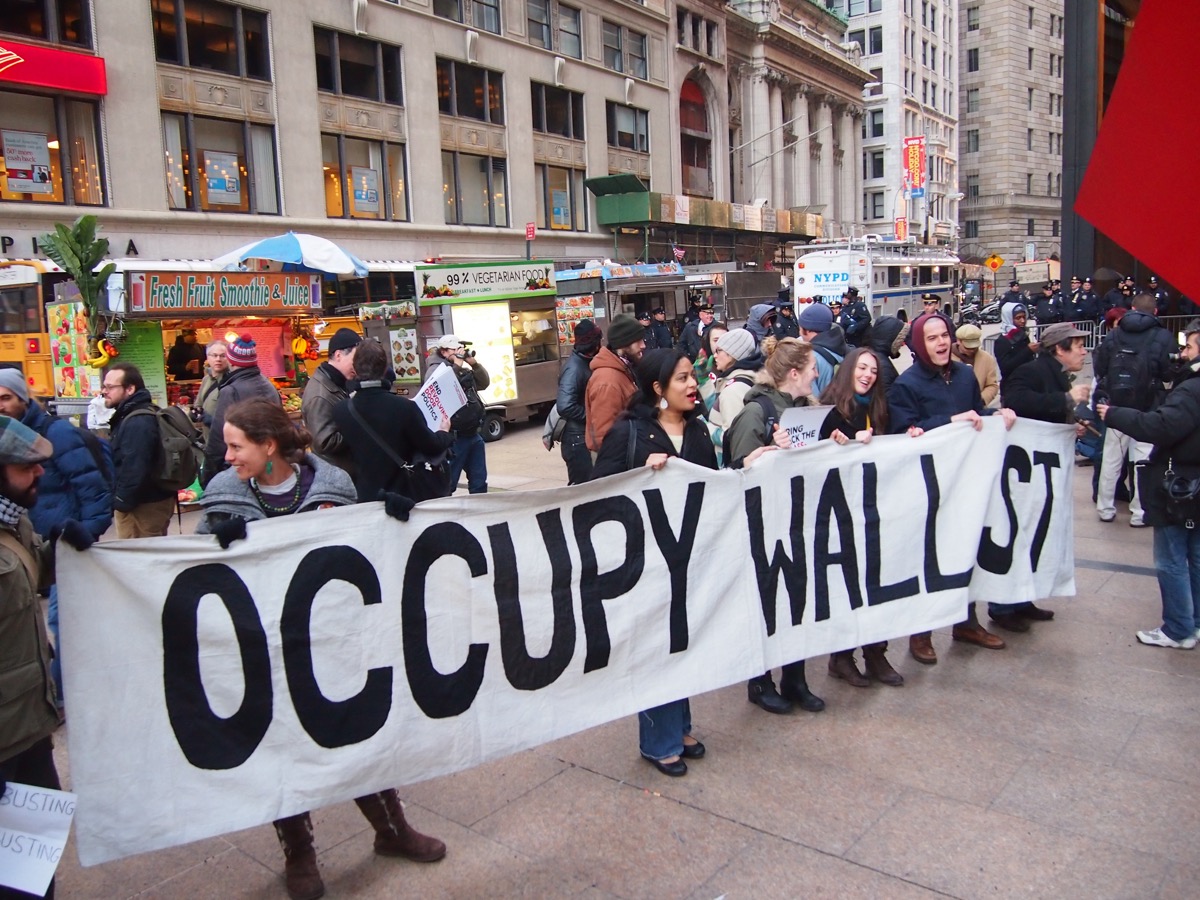
Politics was at the forefront of the conversation in 2011 when “occupy” was selected as the word of the year. At the time, the Occupy Wall Street protest movement was ongoing, putting a spotlight on financial institutions and the economic inequality between the wildly wealthy one percent of the population and the other 99.
2012: hashtag

“Hashtag”—which is represented with the “#” and which Merriam-Webster calls a “symbol before a word or phrase [that’s] meant to be used on social media as a way to track certain terms”—was the word of the year in 2012. Zimmer explained the choice, saying, “In the Twittersphere and elsewhere, hashtags have created instant social trends, spreading bite-sized viral messages on topics ranging from politics to pop culture.”
2013: because
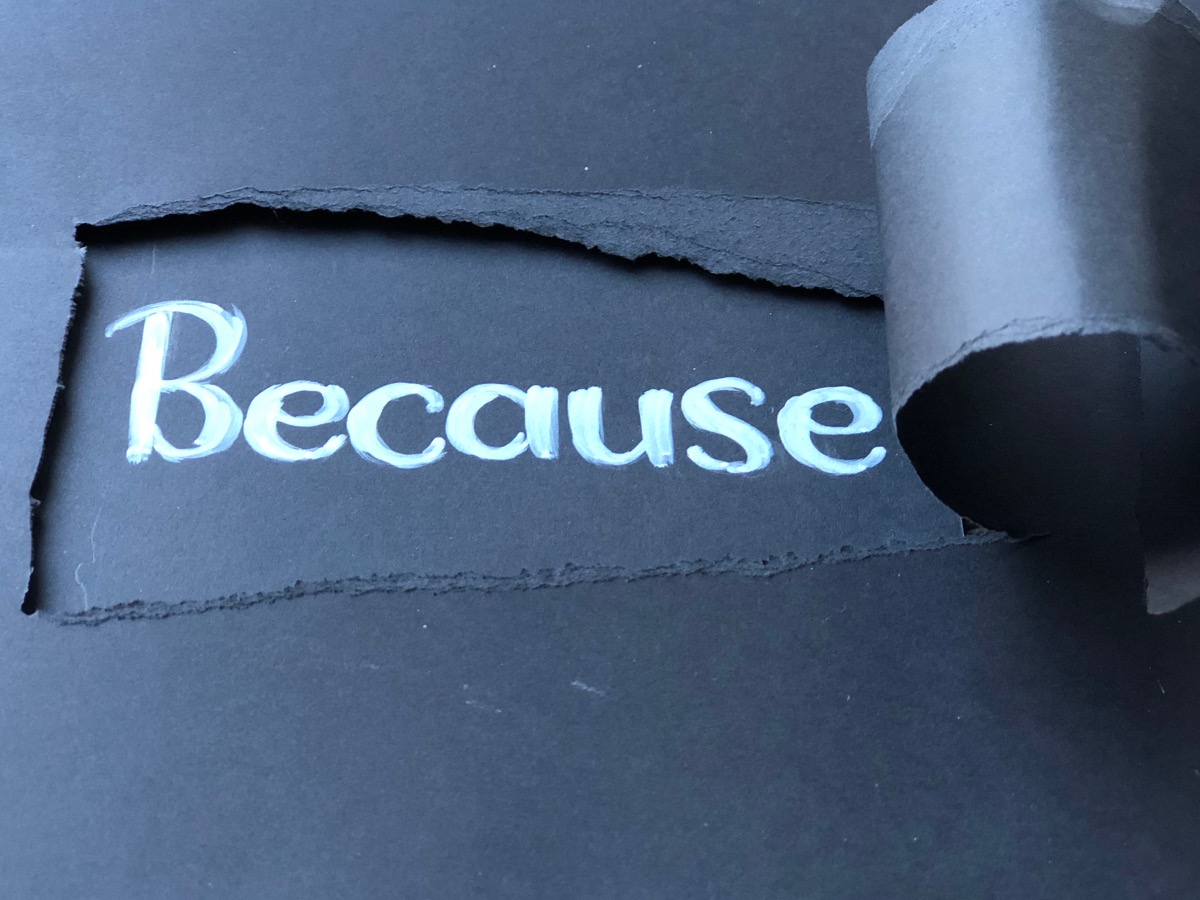
“Because” is a term that was chosen as the word of the year due to the fact that people were using it in a slightly modified way in 2013. Instead of having to say “because of [insert reasoning here],” we could now drop the “of.” Confused? Here’s an example: Instead of saying “I an ate apple because I’m hungry,” you can say, “I ate an apple because hunger.” Or, instead of saying, “I need an umbrella because it’s raining,” you can say, “I need an umbrella because rain.” And if you don’t want to explain yourself at all, you can simply tell someone that you’ve done something “because reasons.”
2014: #blacklivesmatter
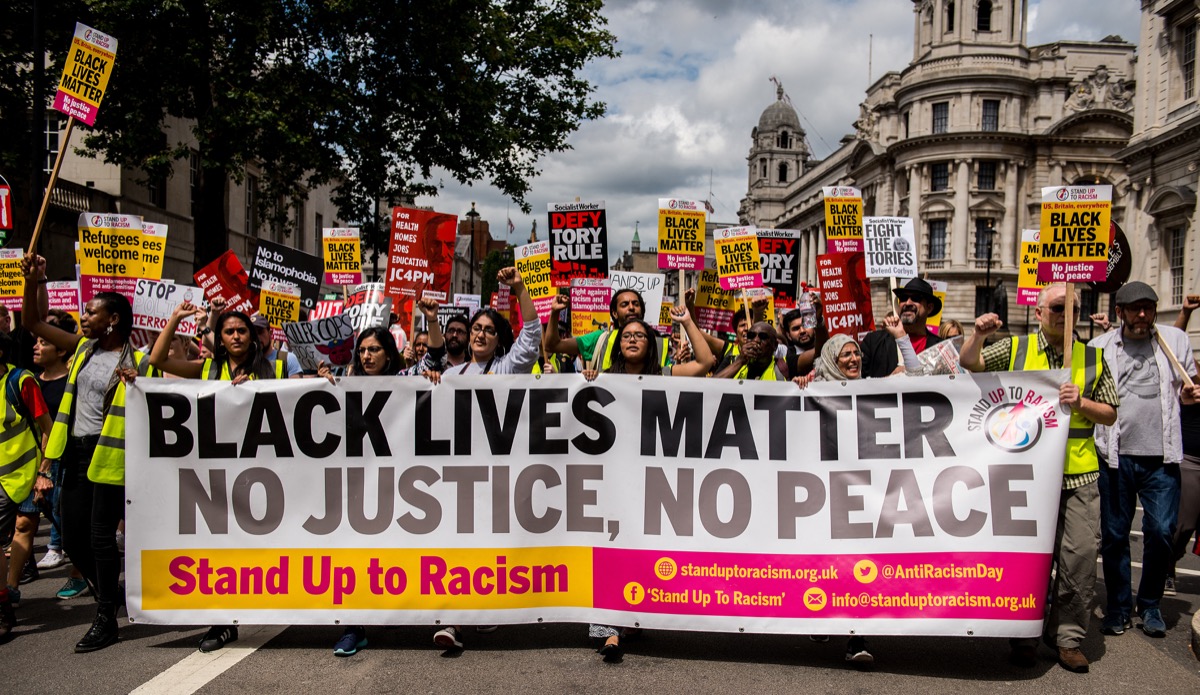
In 2012, “hashtag” may have been recognized for its significance, but two years later, an actual hashtag was selected as the word of the year. Due to heightened awareness of the treatment of Black people by police and authority figures, #blacklivesmatter “became a rallying cry and vehicle for expressing protest” and was selected as the most significant word of the year in 2014.
2015: they
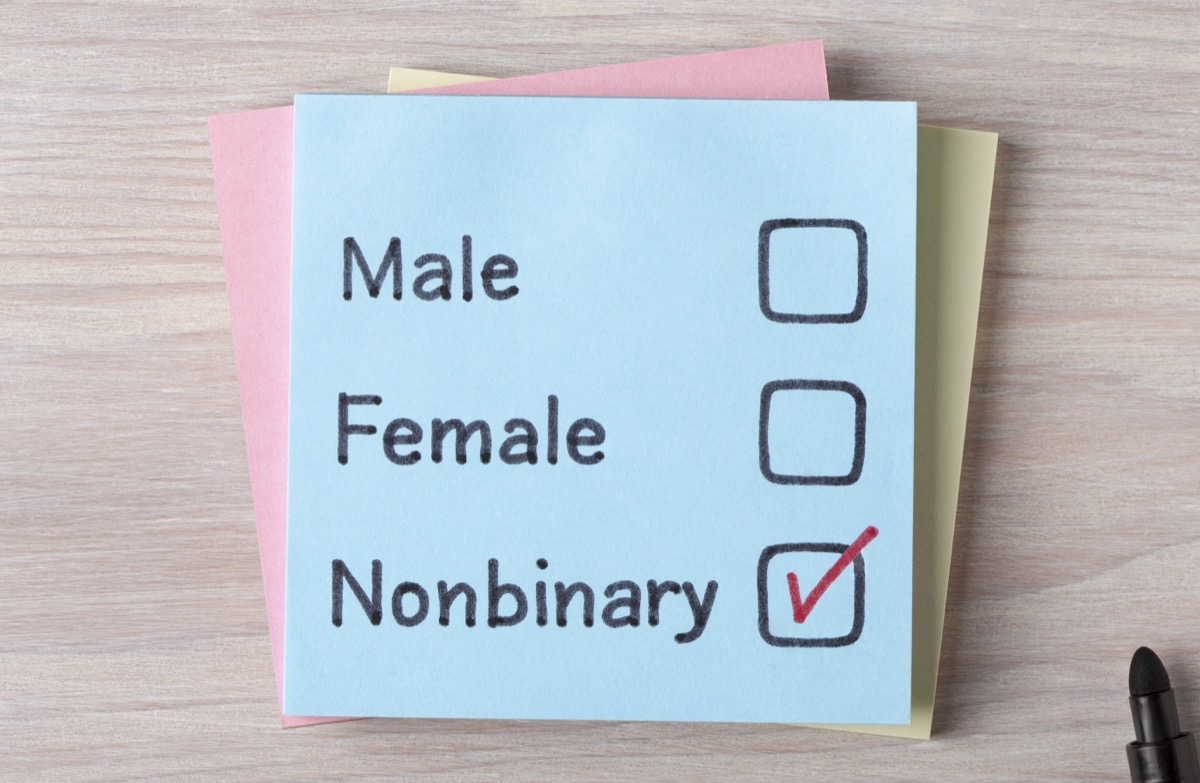
“They” is certainly not a new word and isn’t one that only recently became commonly used. However, the way it’s used has changed in recent years. Once meant to refer to a group of individuals, it’s now also a way to identify a single person who is gender non-conforming or nonbinary and chooses not to use gender-specific pronouns.
2016: dumpster fire

Judging by the ADS’s word of the year, 2016 was a rough 12 months. “Dumpster fire”—which refers to “an exceedingly disastrous or chaotic situation”—was the term the ADS chose as the one that “best represent[ed] the public discourse and preoccupations of the past year.” And while it may have been the (dire) word of choice a few years ago, it’s still regularly used today.
2017: fake news

In the age of the 24-hour news cycle and far-reaching social media platforms, it can be difficult to sort through what information is accurate and what is not. The past few years have seen real facts attacked and dismissed by some in an effort to deny, confuse, or misdirect others. So it’s no surprise the term “fake news” was deemed the word of the year in 2017.
2018: tender-age shelter

The word of the year for 2018 was one that stems from a sad reality that has manifested within the United States. According to the ADS, the term “tender-age shelter/facility/camp” first emerged in June 2018 when it was reported that infants and young children were being held in special detention centers after being separated from their families who crossed over the southern border.”
2019: (my) pronouns
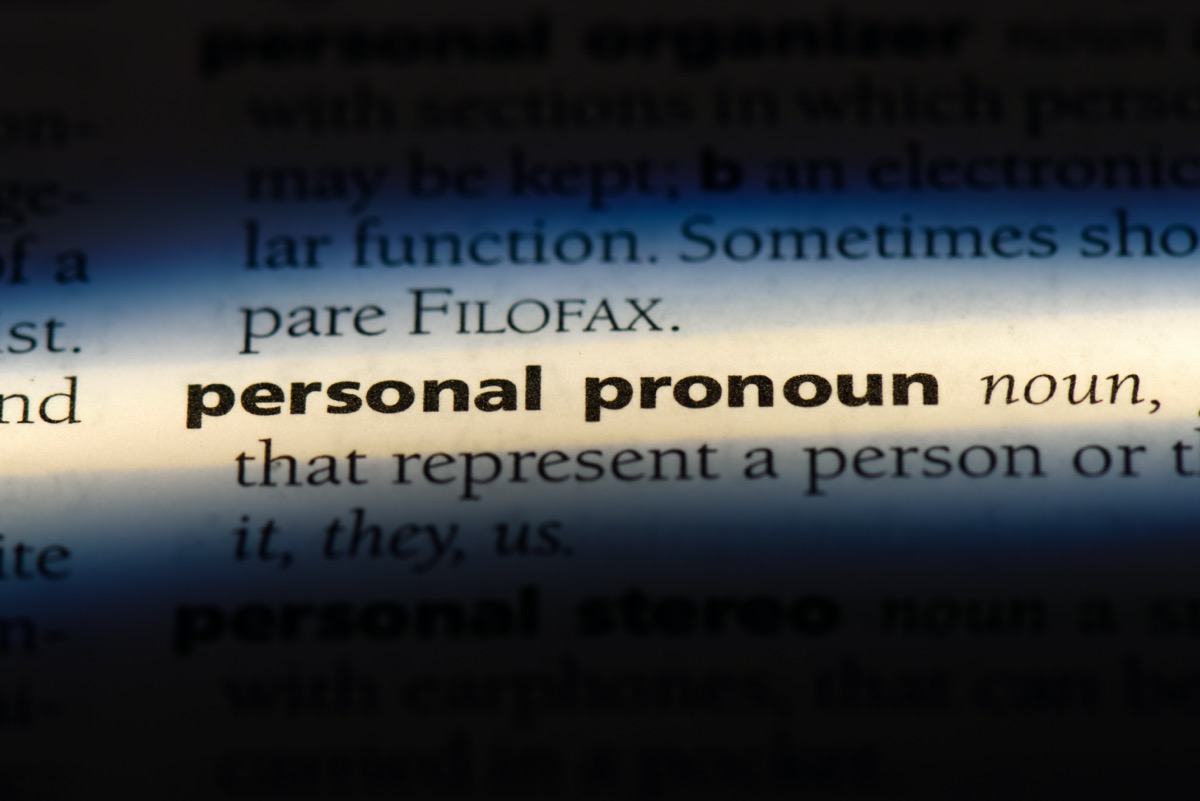
Returning to the cultural shift that prompted 2015’s Word of the Year, the ADS chose “(my) pronouns” as the term that defined 2019. As awareness of differing gender identities has grown, it’s become more common for individuals of all genders to list their pronouns in e-signatures and bios, as well as to offer them verbally.
“When a basic part of speech like the pronoun becomes a vital indicator of social trends, linguists pay attention,” Zimmer explained in the ADS announcement. “The selection of ‘(my) pronouns’ as Word of the Year speaks to how the personal expression of gender identity has become an increasing part of our shared discourse.” In addition, the singular form of “they” was chosen as the Word of the Decade.